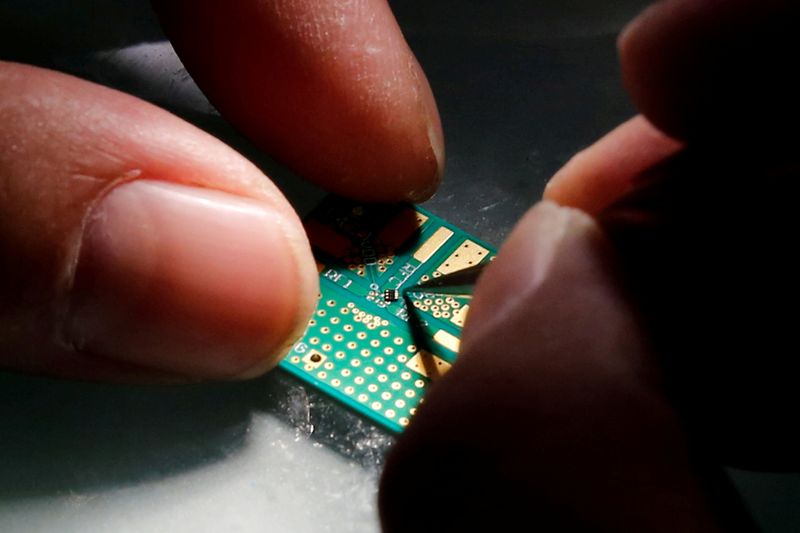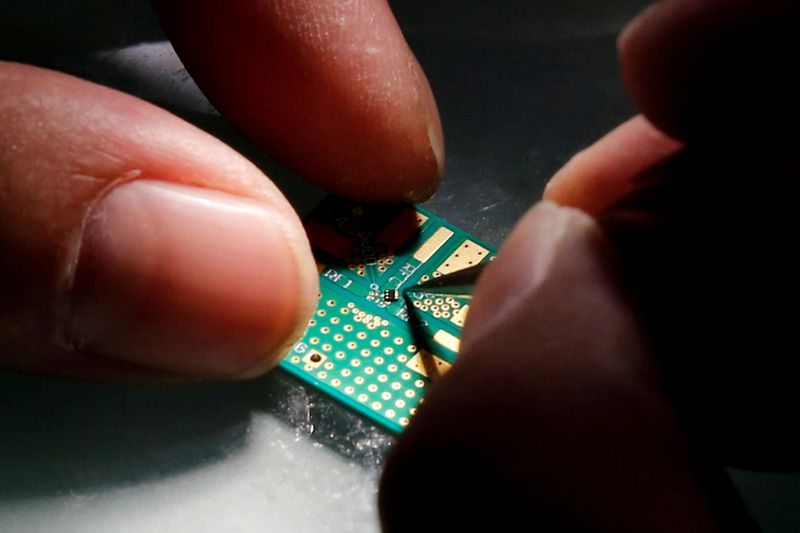SHANGHAI (Reuters) - The Chinese Semiconductor Industry Association (CSIA), a major trade association for China's chip industry, will establish a working group with its U.S-based counterpart, the organisation announced on Thursday.
The announcement on the CSIA website, which caused a surge in prices of semiconductor related stocks in China, could signal closer cooperation as the two countries as they spar over technology.
The CSIA said in its post it would form a joint working group with Washington-based Semiconductor Industry Association (SIA), with each side being represented by 10 chip companies.
The working group will meet twice a year to discuss issues such as intellectual property, trade policy and encryption.
The date of the first meeting and the companies involved were not specified.
The SIA did not respond to a request for comment outside of U.S. working hours. The website of the SIA made no mention of the working group.
Shares in Semiconductor Manufacturing International Corporation, the leading chip manufacturer in mainland china, rose as much as 12.4% in Hong Kong upon the announcement.
Hua Hong Semiconductor, a rival Chinese manufacturer, rose 14%, while Hang Seng Tech Index rose 5.2%, marking its largest percentage gain since Jan. 20.
China is the world's largest purchaser of semiconductors, but its domestic production of chips is marginal.
Beijing has long been urging local governments and private enterprises to invest in the domestic chip industry, which has long lagged behind those of the United States, Japan, and Korea.
In the previous decade, the government set a goal to produce 40% of the chips it consumes by the year 2020, but analysts say it has missed that target by far.
According to research firm ICInsights, of the $143 billion in chips sold in China in 2020, only $22.7 billion worth were produced in China, and only $8.3 billion was produced by Chinese-headquartered companies.
China's need to reduce its dependence on overseas chip companies came to light in 2020 when U.S. sanctions imposed on Shenzhen-based hardware maker Huawei Technologies Co. Ltd prevented it from sourcing components, crippling its once-booming smartphone business.

Meanwhile, both countries find themselves navigating through a global chip shortage, which has rattled the electronics industry as various automotobile, smartphone, and gadget makers scramble to get components for production.
